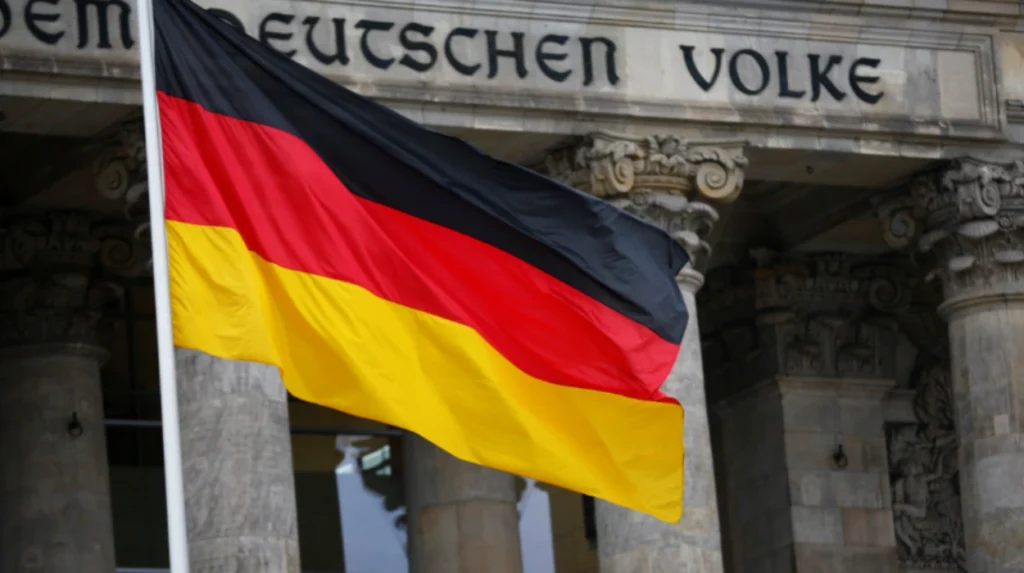The Council of Europe has recently called on the German government to increase transparency around lobbying activities by publishing more comprehensive details of lobbying efforts. This demand underscores persistent concerns about the opacity of political influence and decision-making processes within Germany, despite recent legislative efforts to regulate lobbying. As Europe’s largest economy and an influential member state, Germany faces calls to lead by example in improving openness in interactions between public officials and interest groups.
Lobbying transparency is crucial in ensuring democratic accountability, allowing citizens and civil society organizations to track how policies are shaped and whose interests are prioritized. The Council’s call comes amid broader European debates about transparency in government and institutional reforms to prevent undue corporate influence.
Germany’s Current Lobbying Regulation Landscape
Germany implemented its first formal Lobbying Register Act in 2022, marking a significant milestone towards regulating lobbying activities. This law created a publicly accessible register where companies, associations, and lobbyists disclose their lobbying presence, financial expenditures, and objectives related to influencing legislation at the federal level.
However, the 2022 act has been met with criticism for its limited scope and enforcement. According to legal observers and civil society voices, the transparency framework did not go far enough in capturing the full range of lobbying activities. The law originally focused on upper-level government contacts but excluded many officials and lobbying engagements at lower hierarchies.
In response to this, the German federal government introduced reforms to the Lobbying Register Act in 2024, broadening disclosure requirements and increasing the scope of entities obliged to register. Now, lobbyists must provide more detailed information on their legislative initiatives and clarify how their advocacy efforts are conducted. These reforms also introduced stricter enforcement provisions to enhance compliance.
Despite these improvements, concerns remain about gaps in transparency and limited public access to the mechanics of government decision-making.
Council of Europe’s Urgency for More Transparency
Against this background, the Council of Europe’s recent appeal presses Germany to publish more comprehensive lobbying details than currently mandated. The Council highlights that a lack of full transparency undermines democratic scrutiny and risks allowing powerful corporate interests to overshadow public welfare in policymaking.
A recent analysis by NGOs such as the Corporate Europe Observatory and LobbyControl reveals that Germany’s Ministry for Economic Affairs and Energy exerts significant influence on legislation, often aligning with industry interests. Critics argue that this relationship, coupled with insufficient public disclosure, creates an environment conducive to opaque policymaking.
The Council’s call references the need for more detailed publication of lobbying meetings, correspondence, and the financial aspects of influence efforts. This would help citizens and watchdog organizations hold elected officials and government departments accountable for their interactions and decisions.
The Challenge of Transparency at the Council and National Levels
While Germany has made strides on the national level, transparency issues persist at the broader EU Council level, where member states shape policies behind closed doors. The Council of the European Union—the institution comprising ministers from the 27 member states—is often criticized for its opacity, as most negotiations happen in working groups without publicly available minutes or detailed records.
This opacity at the EU level influences national transparency dynamics, as governments prepare their positions and negotiate without clear public oversight. The German government’s internal preparation for EU policymaking, like others, often lacks thorough democratic scrutiny.
The Council of Europe emphasizes that this system advantages corporate actors with established networks and resources while marginalizing civil society voices lacking similar access. Greater transparency would democratize decision-making, ensuring policies better reflect citizens’ interests instead of narrow economic lobbying.
Parliamentary Rights and Democratic Oversight in Germany
One notable exception to the general lack of transparency has been the relatively strong rights of the German Bundestag regarding EU decision-making compared to other member states. Members of the Bundestag receive comprehensive information on parliamentary discussions and government positions in EU councils and can issue public statements.
However, these rights are primarily exercised by opposition MPs and have not yet translated into a fully transparent or participatory process. For the Council of Europe and transparency advocates, the German parliamentary model could serve as a benchmark for other EU countries, encouraging broader parliamentary access to lobbying data and government deliberations.
Extending such rights more systematically across all layers of government and policy domains would foster greater accountability and citizen engagement.
Civil Society Demands and Recommendations
On the same day as a recent NGO report was published, more than fifty civil society organizations, including environmental groups, financial watchdogs, and transparency campaigns, released a joint statement urging the German government to:
- Prevent the prioritization of corporate interests during Germany’s EU Council presidency and beyond.
- Champion legislative reforms aimed at enhancing transparency within the Council of the EU and in national lobbying regulation.
- Replicate Germany’s parliamentary model of information rights at the EU level.
- Establish new citizen rights to access and influence government decision-making processes related to EU affairs.
These proposals seek not only stronger transparency but also new democratic participation channels, thus reducing political influence imbalances
Implications for German and European Democracy
Germany’s role as the EU’s largest economy and one of its most populous states places it at the heart of European policymaking. As Germany holds the rotating EU Council presidency in 2025, expectations are high that it will provide strong and competent leadership promoting a sustainable and just recovery post-pandemic.
Yet reported cases of close industry-government ties, particularly in sectors like automobile manufacturing and energy, reveal ongoing tensions between economic interests and public welfare. The opacity surrounding lobbying efforts amplifies challenges for journalists, opposition politicians, and citizens seeking to understand or influence policy directions.
In this context, the Council of Europe’s push for more detailed lobbying disclosures is both a call to safeguard democracy and a practical step toward reducing undue corporate influence.
Transparency Beyond Germany: European and Global Perspectives
Transparency reforms in Germany align with broader European Union efforts to increase openness in political financing, NGO oversight, and party regulation. For example, in June 2025, the EU Parliament and Council agreed on new rules to enhance transparency among political parties and foundations, aiming to strengthen democratic safeguards and prevent external interference.
Internationally, Germany’s experience reflects a growing trend toward institutionalizing lobbying registers and mandatory disclosures. However, enforcement, scope, and accessibility vary widely across countries, impeding the creation of cohesive standards. This fragmentation often benefits well-resourced lobbyists at the expense of civil society actors.
Comprehensive transparency frameworks published in accessible formats remain essential tools to empower citizens and reinforce integrity in governance.
Toward Greater Transparency and Democratic Accountability
The Council of Europe’s recent call for Germany to publish more extensive lobbying details underscores an urgent democratic need. While Germany has advanced legal frameworks regulating lobbying, gaps in transparency, particularly regarding the detailed content and financial dimensions of lobbying efforts, remain significant.
By meeting this challenge and expanding publication of lobbying data, Germany could set a precedent for the EU and beyond, fostering a decision-making environment that is more open, accountable, and responsive to citizens rather than narrow vested interests.
As Germany assumes a pivotal role in European policymaking, answering this call would strengthen democratic legitimacy, help curb undue corporate influence, and contribute to rebuilding citizens’ trust in political institutions.







